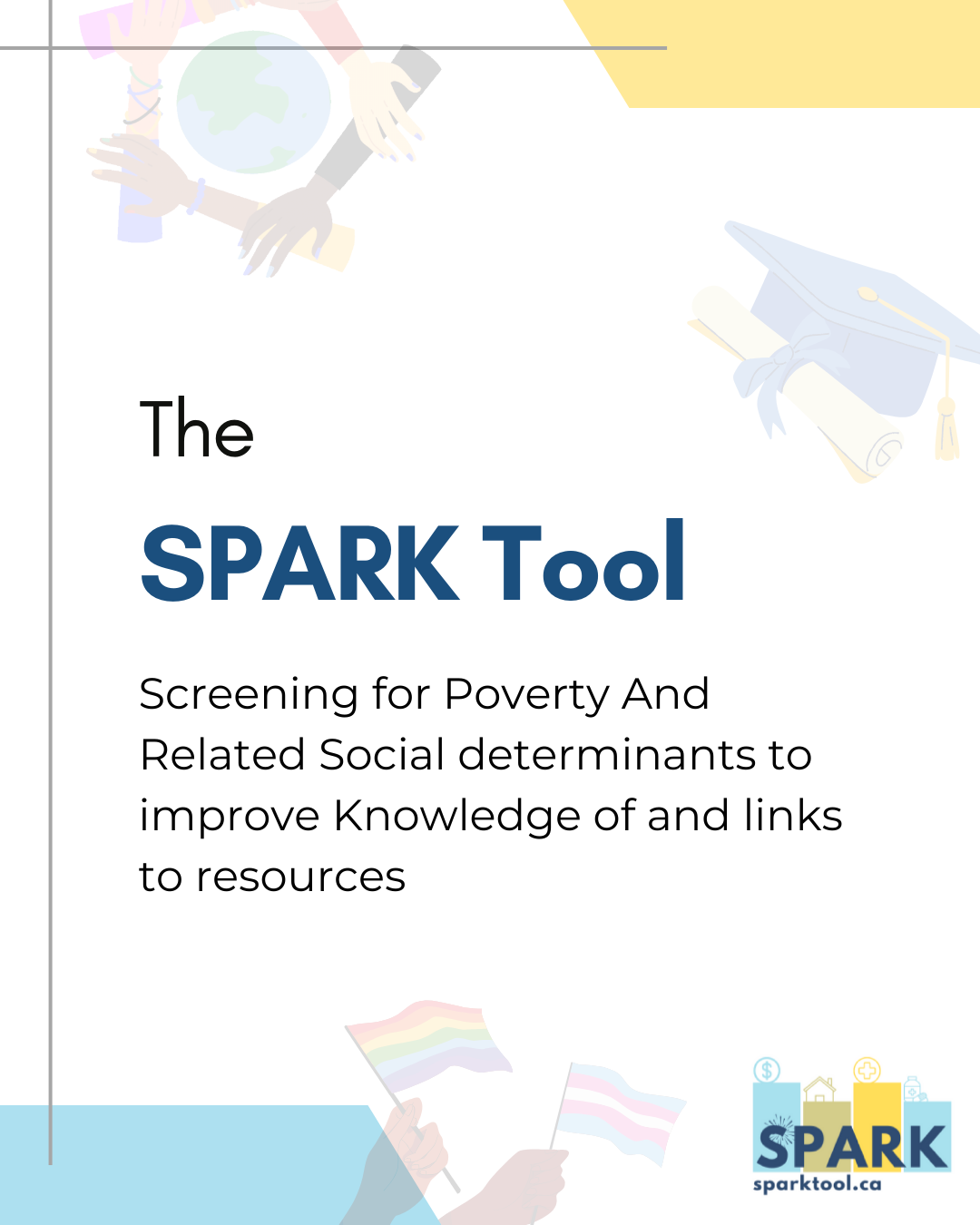
What we do
Our mission
Deep End Canada advocates for addressing health inequities in primary health care at individual, organizational, and policy levels through the collection and use of social determinants of health data and the sharing of ideas and projects.
SPARK Tool for social needs data collection
Funded by the Canadian Institutes of Health Research, the SPARK Study Team based at Upstream Lab created the SPARK Tool, a set of standard questions to gather demographic and social needs data in primary care. Over the last ten years, this tool has been tested and improved in diverse healthcare settings.
Please email info@deependcanada.org to receive a copy of the tool.
Video created by Deep End Canada network members from the University of Calgary, featuring Amber Cannon, Patient Advisor.
Originally called the “Health Equity Questionnaire”, the SPARK Tool is the latest iteration of this work, and was tested in five clinics across five provinces with over 2,060 patients. Demographic questions include language, immigration status, Indigenous identity, race, ethnicity, disability, religion, sex at birth and gender identity, and sexual orientation. Social needs questions include education, income, medication access, housing status, social isolation, transportation, cost of utilities, and precarious employment.
In the SPARK study, more than 96% of providers found the tool useful, and over 84% of patients had a positive experience using it. Regularly collecting demographic and social needs data is acceptable to patients and providers and promotes health equity.
Implementing social data collection still has challenges. SPARK Tool completion rates varied widely (from about 9% to 48%), and more support is needed to address social needs at individual, clinic, and policy levels.
Resources for implementing social data collection
We received support from the Canadian Primary Care Research Network (CPCRN) to expand the use of the SPARK Tool to 20-25 primary care sites across Canada. This expansion led to the creation of Deep End Canada, a growing coalition co-designed with diverse primary health care teams across Canada that serve patients in high-need areas.
As part of our mission to improve the collection and use of data on the social determinants of health in primary care across Canada, we have complied a range of supportive resources, including clinic posters and templates for messaging patients. We also created a Change Package to guide clinical, Quality Improvement, and other teams in primary health care in collecting and using social data.
Infographics by Jenny Duong, Patient Partner






